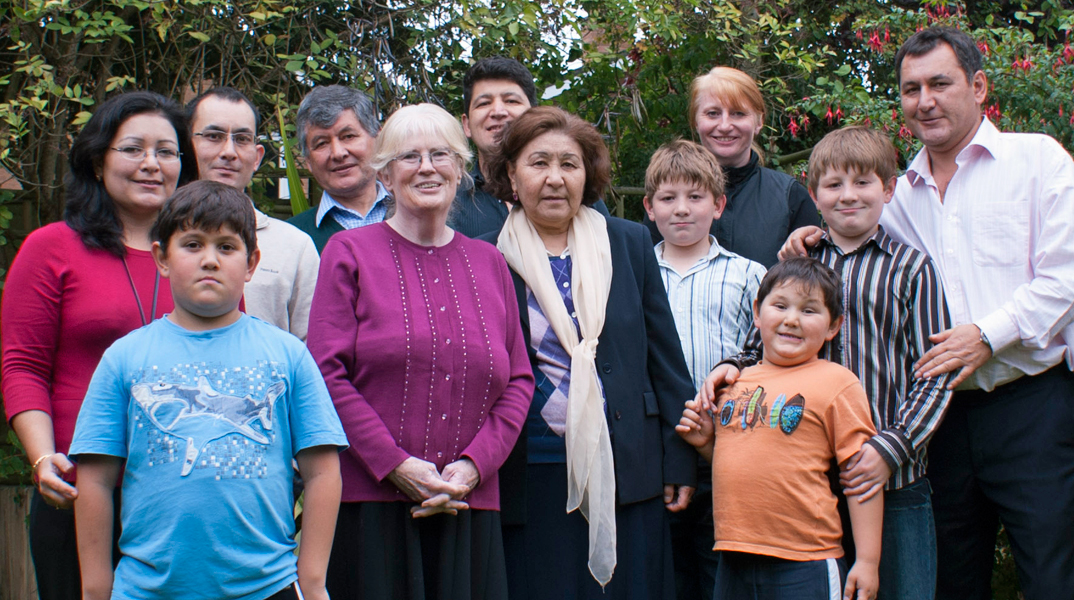Dr Nahid Turan’s expertise in the human genome was nurtured at Birmingham.
As part of a family whose parents and grandparents were both forced to flee from their homes as refugees, Birmingham proved something of a sanctuary for Nahid (BSc Medical Biochemistry, 1998; MSc Toxicology, 2002; PhD Biosciences, 2006).
While her distinguished career has seen her spend more than a decade in the USA as a postdoctoral research fellow and in a senior position at the Coriell Institute for Medical Research in New Jersey, the University remains very much a focal point for the Turans.
Her father, Mohammad (PGDip Development Finance, 1980; MSocSc Accounting and Finance, 1983), began his studies here 40 years ago and the ninth member of her family is currently studying in Edgbaston.
Nahid explains: 'I chose Birmingham because it was near and dear to my heart. My father had taken our whole family out of Afghanistan as refugees from the war, following on from my grandparents fleeing Uzbekistan after the communist takeover in the 1920s.
'We grew up on campus while he was studying and although I went to school in Germany at the age of ten after my father switched careers, the age difference between my older siblings and myself meant the city remained our home base, as my brothers were attending the University.
'We kept on coming back and while I was offered places at three other universities, I felt it would be more comfortable there, and I loved the campus, greenery and environment.'
 Back row: Dr Nahid Turan (BSc Medical Biochemistry, 1998; MSc Toxicology, 2002; PhD Biochemistry and Molecular Biology, 2006), with brother Masood (MEng 1995; DEng Metallurgy and Materials, 2012), father Mohammad Yaqub Turan (PGDip Development Finance, 1980; MSocSc Accounting and Finance, 1983), brother Farid (BEng Chemical Engineering, 1989), sister-in-law Susie (BSc Chemistry, 1990), and brother Ahmad. Front row: nephew Theo, long-time family friend and Mohammad's English tutor at Birmingham, Diane Houghton (BA English, 1971; MA English, 1976), mother Diljan, twin nephews Temur (Second year, BEng Chemical Engineering) and Iskander, and nephew Oliver.
Back row: Dr Nahid Turan (BSc Medical Biochemistry, 1998; MSc Toxicology, 2002; PhD Biochemistry and Molecular Biology, 2006), with brother Masood (MEng 1995; DEng Metallurgy and Materials, 2012), father Mohammad Yaqub Turan (PGDip Development Finance, 1980; MSocSc Accounting and Finance, 1983), brother Farid (BEng Chemical Engineering, 1989), sister-in-law Susie (BSc Chemistry, 1990), and brother Ahmad. Front row: nephew Theo, long-time family friend and Mohammad's English tutor at Birmingham, Diane Houghton (BA English, 1971; MA English, 1976), mother Diljan, twin nephews Temur (Second year, BEng Chemical Engineering) and Iskander, and nephew Oliver.
It meant she was following in the footsteps of her second oldest brother Farid (BEng Chemical Engineering, 1989), the first of her generation to choose to go to university. He met his wife Susan (née Aylward (BSc Chemistry, 1990)) while studying here – and their son Temur (Second year, BEng Chemical Engineering) is continuing the family tradition currently.
Brother Masood Turan (MEng 1995; DEng Metallurgy and Materials, 2012) also met his wife Liang Qiang (PhD Metallurgy and Materials, 2006) on campus, and cousins Freschta Temouri (BSc Accounting & Finance, 2003) and Yama Temouri (BSc Economics with German, 2003) are also alumni.
‘I chose Birmingham because it was near and dear to my heart.'
Nahid's degrees developed her interest in the sciences and diseases, which she has pursued into her professional career at Coriell. Her role includes overseeing all of the extensive laboratory and biobanking operations, as well as managing the scientific operations of the world-renowned Human Genetic Cell Repository – the world’s largest and most diverse biobank of samples of human genetic diseases available to researchers across the globe.
Sponsored by the National Institute of General Medical Sciences (NIGMS), the repository contains samples representing more than 1,000 genetic diseases and chromosomal abnormalities (eg, Down’s syndrome), with tens of thousands of biospecimens distributed from the collection every year to researchers in more than 70 countries.
She says: 'Coriell is a world-famous biobank with high-quality biospecimens that have purposely been made publicly available in order to enable research. We've been continuously funded by the government and other sources because they recognise the need to push research forward.
'For many of these types of samples, we’re the only ones in the world that have them. So there will be scientists at Birmingham who will be using our samples, as well as colleagues across the globe.'
Work does not stop Nahid from returning to campus, and she adds: 'While the family has spread across the globe, we still have strong ties with the city and I come back to the UK regularly.
'My parents now live in Redditch and my father sometimes goes to the Business School to read the newspapers!'